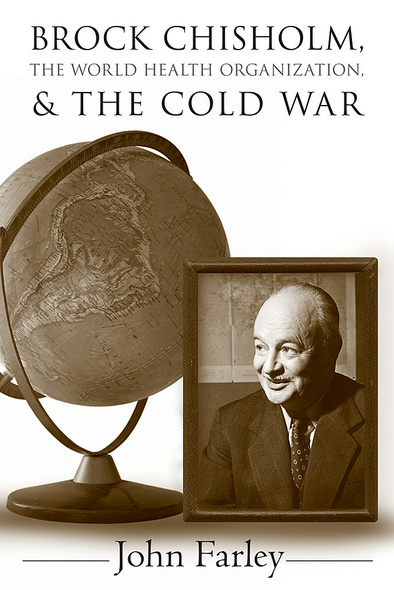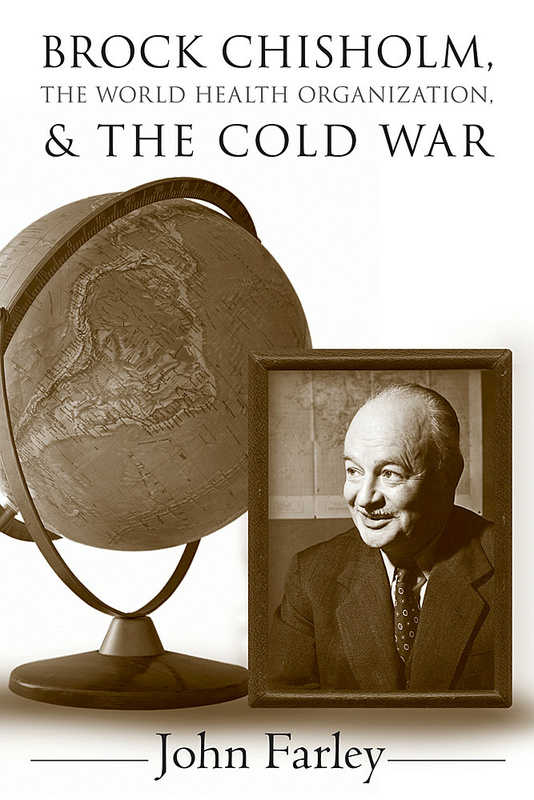
This is the story of a man and an institution. Brock Chisholm wasone of the most influential Canadians of the twentieth century. Aworld-renowned psychiatrist, he was the first director-general of theWorld Health Organization, and built it up against overwhelmingpolitical odds in the years immediately following the Second WorldWar.
During Chisholm’s lifetime, the only other Canadians asinternationally prominent were Lester B. Pearson and Marshall McLuhan.Yet today he has been largely forgotten – perhaps because he wasso controversial. An atheist and a fierce critic of jingoisticnationalism, he supported world peace and world government and became achampion of the United Nations and the WHO.
Official histories of the WHO place the organization in a politicalvacuum, but John Farley focuses on the battles Chisholm and his allieswaged during the early Cold War, as the United States and the SovietUnion eyed each other warily and the Roman Catholic Church flexed itsmuscle on morally sensitive medical issues. Post-1945 internationalpolitics, global health issues, and medical history intersect in thishighly readable account of a remarkable Canadian.
1 The First Steps, 1945-46
2 Who Was Brock Chisholm?
3 The Interim Commission, 1946-48: The Long Wait
4 The First World Health Assemblies: Into the Cold War
5 Money Matters
6 Politics Matter
7 Social Medicine and Its Decline
8 Tuberculosis: The Vaccine Controversy
9 The Penicillin Bullet: Syphilis and Yaws
10 Malaria and Famine
11 Nearly Torn Apart: The WHO and the Catholic Church
12 Only One Term
13 Retirement
Notes
Bibliography
Index





